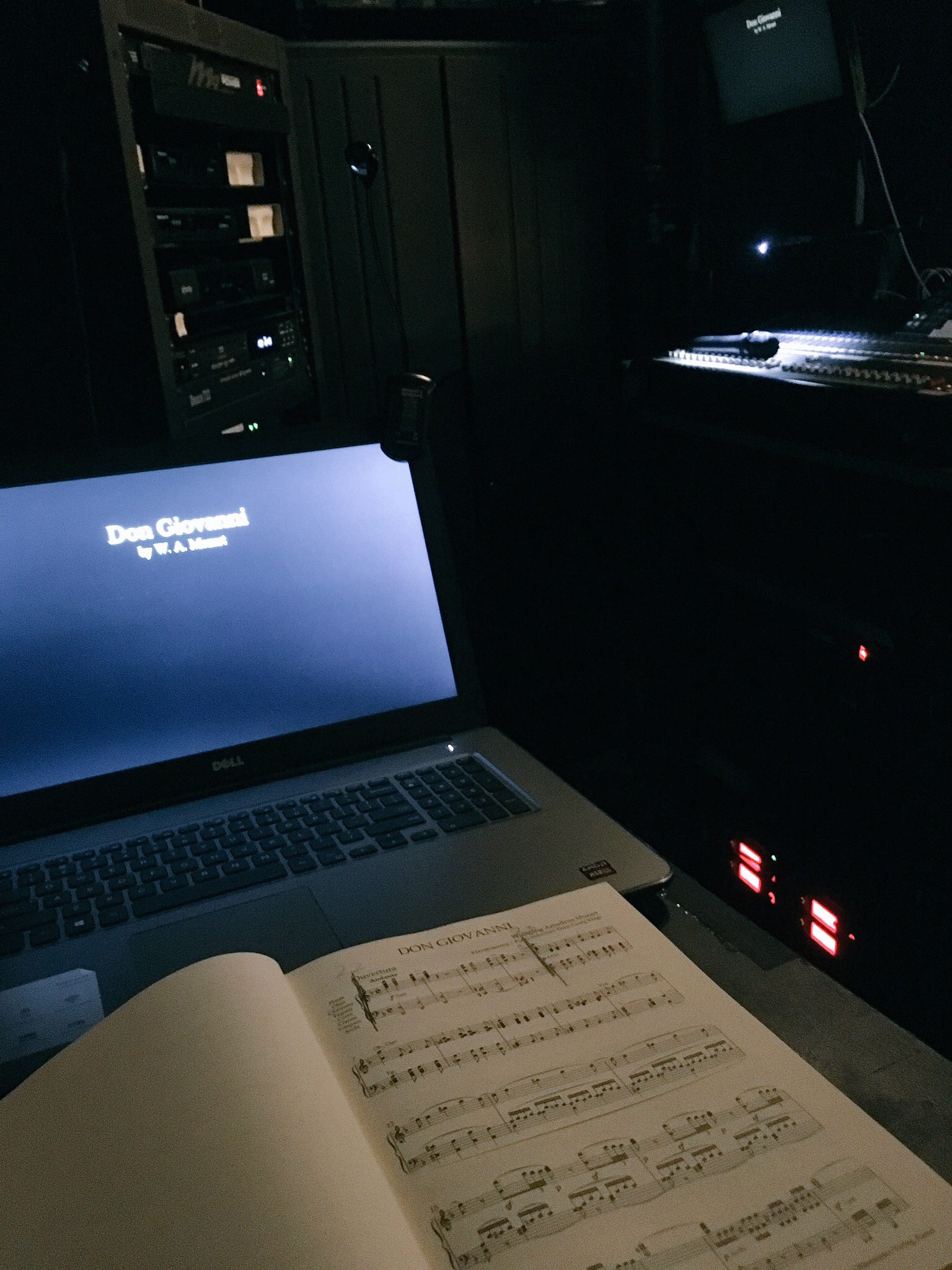
Recently I had the opportunity to supertitle a production of Mozart’s Don Giovanni for Stonington-based Salt Marsh Opera (SMO). This means I was in charge of projecting translations of the opera’s lyrics, which were sung in Italian, above the stage so the audience could understand what the singers were saying. Supertitling an opera is an extremely challenging task that I’m glad I had the opportunity to perform. It requires following along with the singers, conductor and score through almost the entire performance while projecting the correct title at each prescribed moment. It’s almost like playing percussion in an orchestra because of the precision required in being on cue and in sync with the rest of the performers. Needless to say, the intense concentration needed for the three-hour performances made it a very exhausting but fulfilling task.
I became aware of SMO, and its artistic director Simon Holt, who occasionally performs at the College, last year via a professor. This semester Simon was named as substitute conductor of the Connecticut College Orchestra; Professor Mark Seto, who normally conducts, is taking a sabbatical. Recognizing that Simon would be a great connection for getting involved with SMO I approached him during the very first orchestra rehearsal of the semester and told him that I would be interested in working with the company during their fall production. He said he would be happy to have me, and asked me to think about what kind of a role I would be interested in.
A few weeks later, after getting a better understanding of my schedule and thinking about what aspects of opera production, I approached Simon about running supertitles. I convinced him I would be the right person for the job, and we made arrangements for me to come to rehearsals and performances, and to get between the College and performance venues.
Over two weekends, I ran supertitles for two dress rehearsals and four performances in two different venues, the Mashantucket Pequot Museum in Ledyard and the Katharine Hepburn Cultural Arts Center (The Kate) in Old Saybrook. Doing this was not only an opportunity to improve my skills as a musician, but it also gave me more awareness about performing opera. Each venue had different environmental factors I had to consider. For example, in the Pequot Museum, my desk was set back a few feet from a window overlooking the stage, so when I sat in my chair I could only see the back of the stage. I had to stand during some numbers to see the singers. On the other hand at The Kate, I had a great view of the stage from my seat, but I was working in a very cramped booth. After having these diverse experiences with SMO I definitely want to try running supertitles again in the future. It’s a skill that I feel I have to practice many more times before I truly master it.
